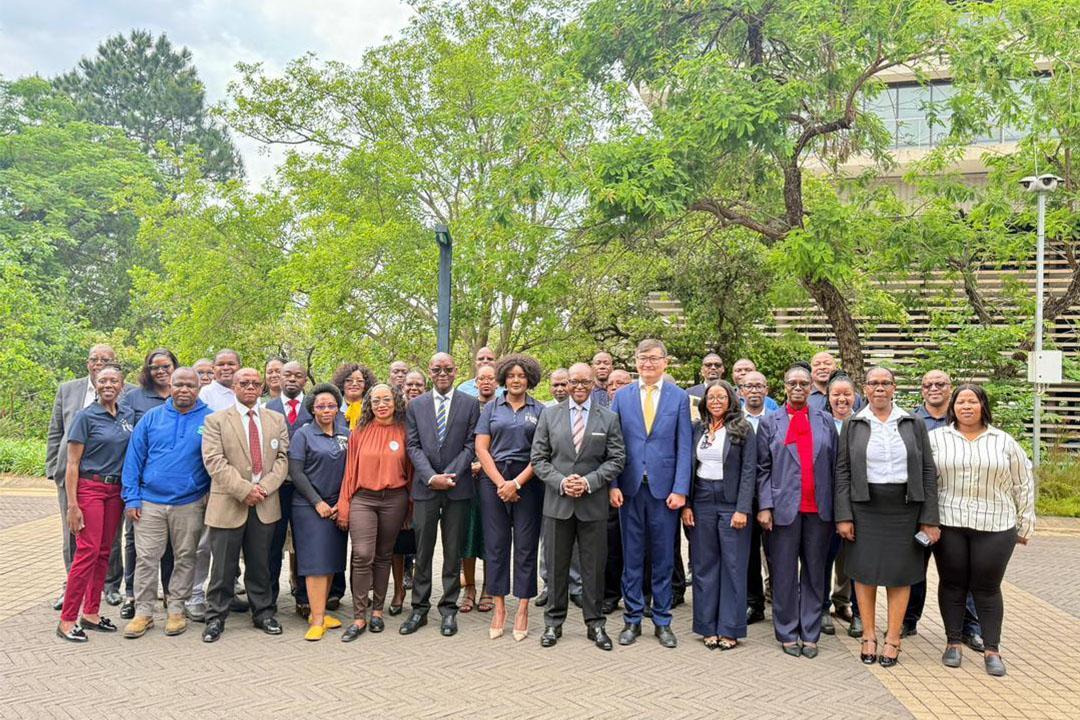Africa-Press – Eswatini. Eswatini is redrawing the map of its borders, not by land, but by vision.This as the Kingdom has kicked off a historic two-week workshop aimed at modernising border operations and boosting trade efficiency through a new Inter-Agency Cooperation Framework.
Hosted at the Eswatini Revenue Service (ERS) conferenceroom, the workshop marks a defining moment in Eswatini’s push to become a regional trade hub.
The initiative, driven by the Eswatini National Trade Facilitation Committee (NTFC), is backed by the World Customs Organization (WCO) and funded by the UK’s His Majesty’s Revenue & Customs (HMRC) under the Accelerate Trade Facilitation Programme.
A NEW ERA FOR TRADE
The mood in the room was electric as government and private sector leaders came together to chart a smarter, faster, and more transparent way of doing cross-border business.
Speaking during the opening, Business Eswatini CEO, one of the NTFC co-chairs, said the project was not just about systems, but about empowering businesses.
“For our traders, exporters, and importers, delays at the border are a direct tax on competitiveness,” he said.
“This initiative embeds the voice of business into the DNA of border management. We are building a predictable, efficient trading environment that will drive investment and growth.”
He applauded the project’s momentum, noting that Eswatini was already implementing recommendations from the Bilateral Time Release Study with South Africa.
“While borders divide, customs connect,” he added, drawing nods across the room.
MAKING EVERY SECOND COUNT
ERS Commissioner of Customs & Excise Gugu Mahlinza described the Framework as a national game-changer.“The efficiency of our borders is a matter of national interest,” she said.
“This Framework ensures our policies and practices complement one another, making it easy for compliant trade while safeguarding our nation.”
She explained that the initiative will form part of a “whole-of-government” approach to streamline coordination between agencies, enhance the Authorised Economic Operator programme, and strengthen risk management systems.
“We are fully committed to making this Framework work,” Mahlinza emphasised.
“Through disciplined project management, we will track progress, ensure accountability, and deliver on every commitment.”
STREAMLINING THE FUTURE
At its core, the workshop focuses on two deliverables:
Business Process Modelling (BPM): Mapping and redesigning current border procedures to eliminate bottlenecks.
Inter-Agency Standard Regulation: Creating a unified framework for how all regulatory agencies operate at border points.
The reforms align with Article 8 of the WTO Trade Facilitation Agreement and are expected to improve customs clearance times, data exchange, and infrastructure planning, making Eswatini’s borders smoother, smarter, and safer.
BEYOND THE BORDER
Officials say this collaboration between Business Eswatini, ERS, and the Ministry of Commerce, Industry & Trade represents a new kind of partnership, one that places innovation and accountability at the centre of economic growth.
By the end of the workshop, Eswatini is expected to have a modernised border system that not only accelerates trade but also positions the nation as a gateway for regional commerce.
And as one delegate aptly put it during the session, “This isn’t just about crossing borders. It’s about crossing into the future.”
For More News And Analysis About Eswatini Follow Africa-Press







